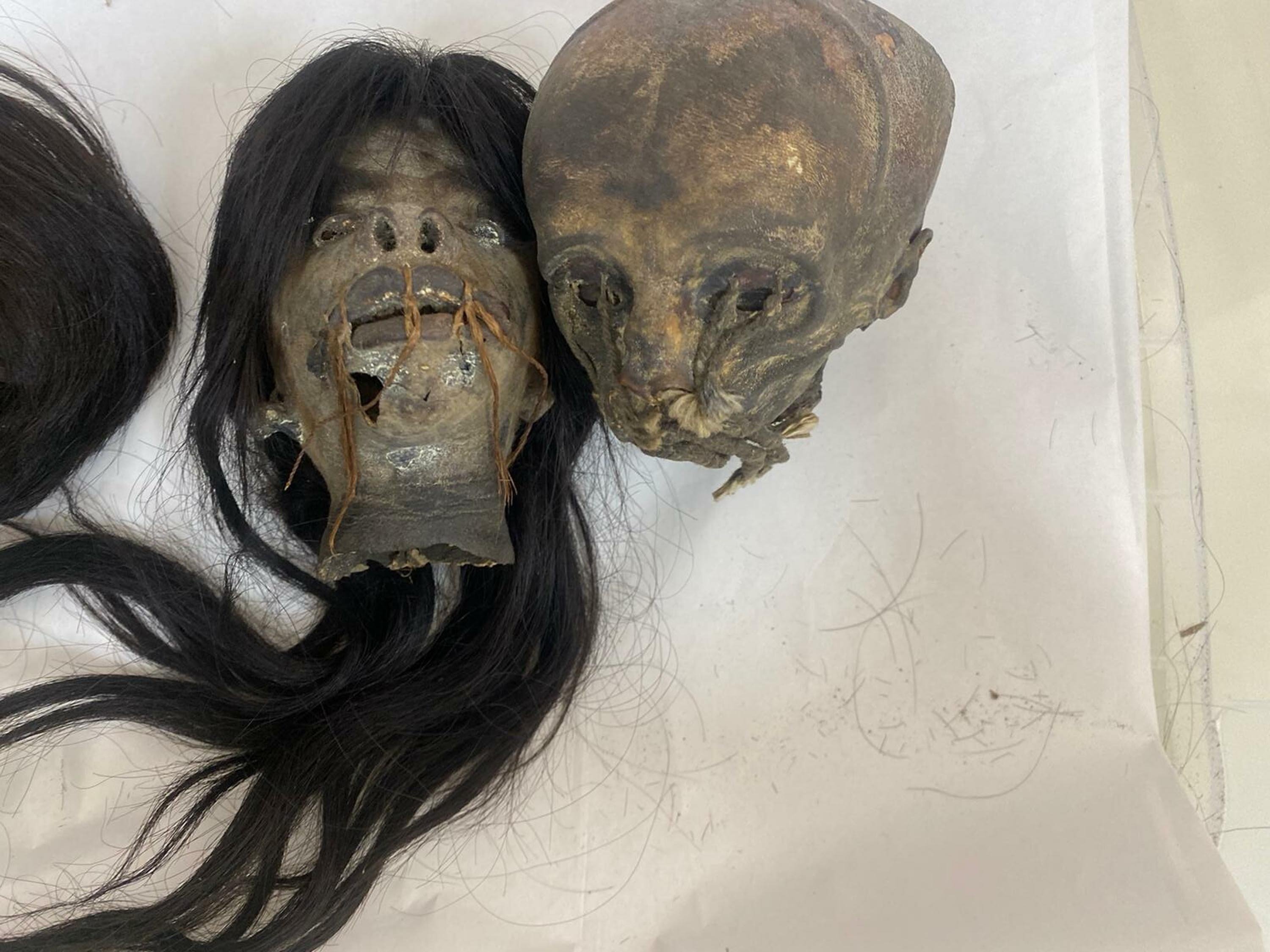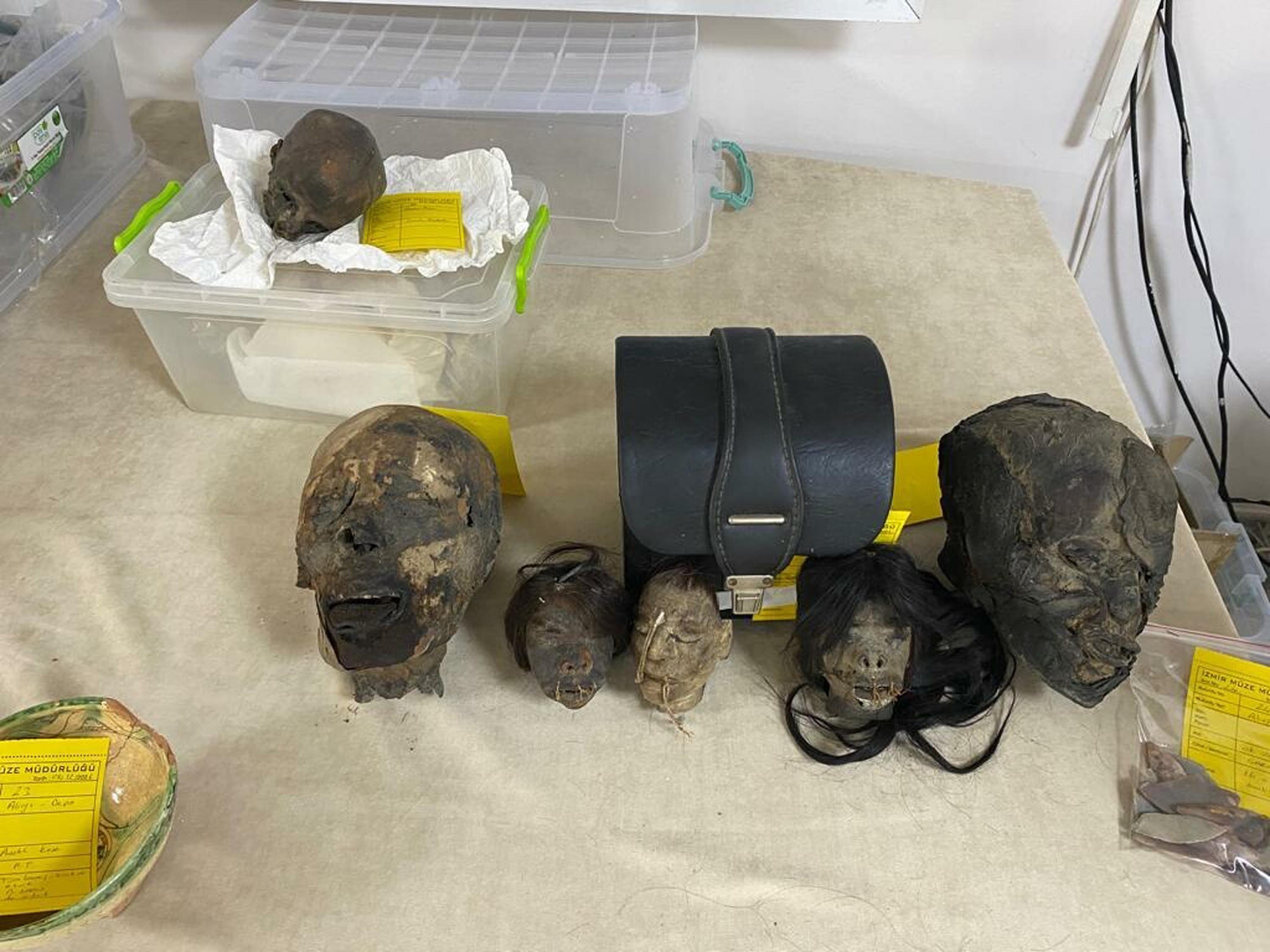© Turkuvaz Haberleşme ve Yayıncılık 2024
Some 1,045 valuable and rare artifacts confiscated in Turkey's Izmir province, including what is believed to be several infamous shrunken heads called "tsanta" from the Amazon, are now being analyzed by experts.
The artifacts were seized from a house and a warehouse during a three-day operation carried out by Izmir Customs Enforcement Smuggling and Intelligence Directorate teams in Izmir's Aliağa district in December last year. The items included historical artifacts, ethnographic artifacts, oil paintings, church materials, books, icons and archaeological artifacts from several cultures.
Among the rare artifacts, the shriveled heads called "tsantsa" drew particular attention. Once used as trophies, in rituals or for trade purposes, tsantsas are severed and specially prepared human heads created by the Jivaros living in the depths of the Amazon in Northern Peru and Southern Ecuador.


Customs authorities have handed the items over to the Izmir Museum Directorate to be cataloged. Experts at the directorate are still investigating the origins of several items and once established, the Ministry of Culture and Tourism plans to return foreign artifacts to their country of origin.
Izmir Archaeology Museum Director Cengiz Topal told Demirören News Agency (DHA) that several reports on the items have been completed and progress was being made in identifying the exact origins of each item.
"Within this group are manuscripts, paintings and some groups of works we think may belong to other cultures. We want to have them examined by experts familiar with their history. For example, experts came from the Hagia Sophia Museum in Istanbul to research manuscripts and church materials," Topal explained.
Some of the artifacts are believed to have originated from South America, Africa and Eygpt, Topal also said. "Studies and investigations on these works continue. After the artifacts belonging to these countries are identified, the Ministry of Culture and Tourism will contact the relevant units of the countries and the artifacts will be returned to the countries," he said.
Experts have determined that 870 of the artifacts, including carpets, rugs and significant archaeological finds, are of Anatolian origin. Topal said once the judicial process is complete, these items will be cataloged and placed in a collection at the Izmir Archaeology Museum for visitors to enjoy.
